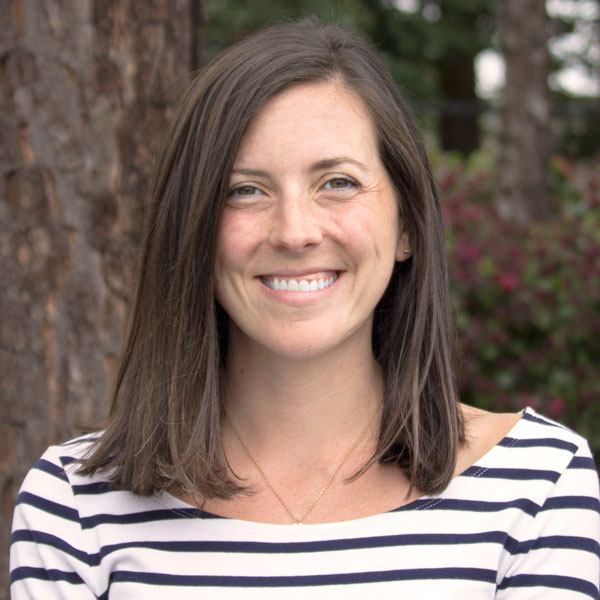Staff Highlight: Molly Mercer-Deadman, M.Ed

Molly Mercer-Deadman, M.Ed, is the education outreach director for Skyland Trail. She joined the team in March 2021. Since then, she has led continuing education initiatives for the multidisciplinary treatment team at Skyland Trail, other mental health professionals in the community, and helped to facilitate weekly STEP meetings for current and former client families. She also leads the Skyland Trail clinical internship program.
What inspired you to enter the mental health field?
My background is working with adolescents and young adults with autism spectrum disorders. I taught for over 10 years, and through that work, I developed an understanding of the significance of holistic education. Skyland Trail’s focus on the whole person—physical wellness and nutrition, social skills, daily living, adjunctive therapies, vocational training, and more—really drew me to the program. Mental health should be supported alongside all other aspects of a person’s life. Through my lived experience, I have a deep awareness that I cannot be successful and fulfilled in any of my “roles—my job, being a mom, sister, friend, partner, etc.—if I’m not prioritizing my mental health. I’m grateful to be working at an organization that recognizes and promotes the importance of mental well-being.
What is your favorite part of working at Skyland Trail?
Skyland Trail has the most competent, caring staff. I learn something new every day from our clinicians and clients.
What is an education topic that you think more clinicians should learn about?
I think it’s incredibly important to continue seeking education on how to provide the best evidence-based care. Skyland Trail provides many educational events for community members and for other clinicians. Next year, Skyland Trail will offer virtual training on a wide variety of topics from teen social media use to the neurobiology of trauma. Stay tuned!
We also want Skyland Trail to be a safe, understanding, and inclusive setting for our staff and clients. I think there is equal importance in providing education on diversity, equity, and inclusion topics, such as how to provide the most affirming care for the trans and gender-diverse community, how to recognize our unconscious biases, and more.
Why should employers include mental health education in their employee programming?
Research shows that anxiety and depressive disorders are costly for employers. Quality mental health education and the use of appropriate treatment can be effective support. People perform to the best of their potential when they feel safe and supported. Prioritizing mental health can positively impact both employees and employers, allowing both to flourish in their roles. We are grateful to work with businesses in the Atlanta community and nationwide to provide education on how to support the mental health of their employees.
How does Skyland Trail prepare clinical interns to further their careers in mental health?
Skyland Trail offers a unique experience as interns are exposed to a well-rounded, multidisciplinary team who are in constant collaboration. Interns are supervised by licensed clinicians and also have daily interactions with psychiatrists, psychologists, social workers, counselors, marriage and family therapists, dieticians, nurses, and more. Because each client has specialized needs that require individualized treatment plans, interns are exposed to an array of evidence-based therapies used in multiple applications.
From your experience working with families, what’s one impactful thing that family members can do to support a loved one with mental illness?
I’m going to stretch this and say two things. Self-care and education. Families are an integral part of the recovery process. We encourage all families to join our education and support programming, and we value their input tremendously. Our programs have developed over the years as a direct result of their feedback. It’s cliché, but true, that you can’t pour from an empty cup, so prioritizing your own mental health and focusing on your own self-care routine is incredibly important.
Who or what inspires you?
So many things. The resiliency and strength of people working towards recovery. Compassion. Activists and people who fight for a better world.
What’s one way you practice self-care?
My self-care ebbs and flows. I go for walks with my family. I love baking, watching British home improvement shows, and listening to music and podcasts.
What’s your favorite cheerleading statement or mantra?
“Do the best you can until you know better. Then when you know better, do better.” – Maya Angelou
